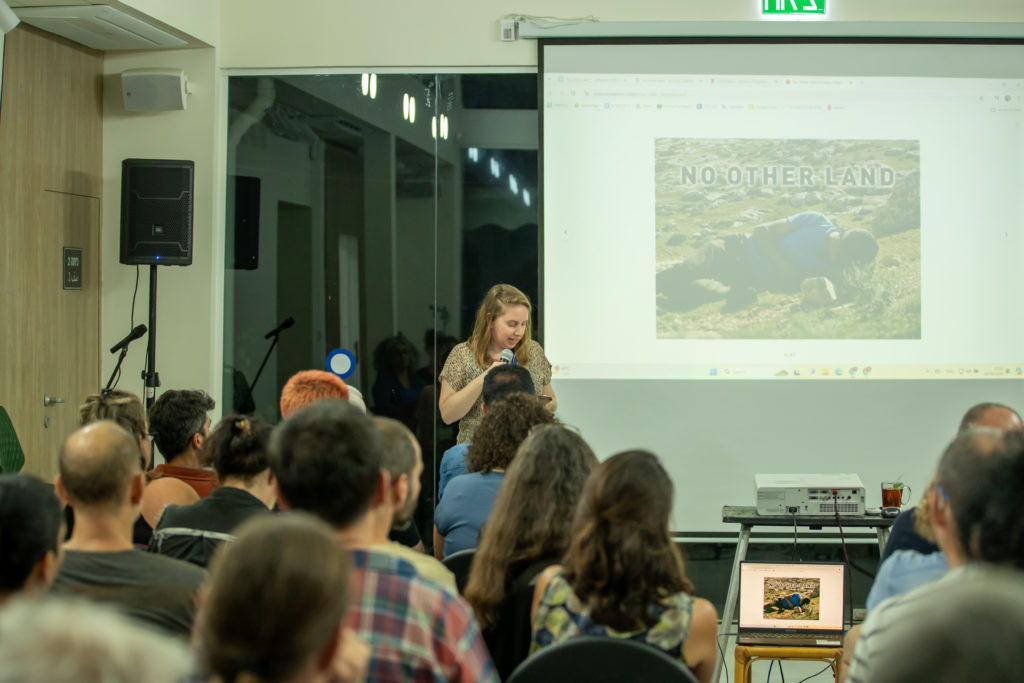Screening of the Film “No Other Land”
As part of the 3rd alumni conference of the School for Peace, June 2024
On Friday evening, after a day full of activities and dialogue, we screened the documentary “No Other Land,” directed by Basel Adra, Hamdan Ballal, Yuval Abraham, and Rachel Szor. The film won the Best Documentary award at the Berlin International Film Festival this year and gained significant attention after Yuval and Basel’s acceptance speech, in which they called for an end to the war and spoke about the discriminatory and unequal system governing their lives—a system that prioritizes Jewish citizens and oppresses Palestinian citizens. This speech garnered widespread international reactions, both supportive and opposing.
The film follows several years of the struggle of the villages of Masafer Yatta in the southern Hebron Hills against the ethnic cleansing and attacks they face, including frequent building demolitions, arbitrary arrests, and violent, sometimes deadly, attacks by their Israeli settler neighbors. At the same time, the film tracks the partnership formed between Yuval, a Jewish-Israeli journalist, and Basel, a resident of Yatta and a leader of the popular struggle in the area. Thus, the film not only portrays the daily lives of the Masafer Yatta communities under a brutal and violent Israeli military occupation but also raises questions about the different national identities of the film’s protagonists and the possibility of joint action against the occupation.
Approximately 100 people attended the screening, including alumni and residents of the village. The film had a profound impact on the conference participants, both emotionally and in terms of continuing the dialogue process. People could not sit quietly in their seats during the screening, with many getting up, leaving, and returning in the middle. Following the screening, we heard reactions such as “I felt like a truck hit me,” “like getting punched in the stomach,” and people shared that they thought about the film all night. One facilitator mentioned that it was challenging to “gather” the participants in the dialogue group on Saturday morning for the first session after the film screening, as people were still under the film’s influence. The film impacted the dialogue by highlighting the gap between the conference’s theme—liberation, which looks to the future and envisions a reality where injustices cease—and the harsh reality on the ground. Although the “encounter” with this reality is difficult, it is essential and necessary for thinking about a future of liberation. It also emphasized the importance and urgency of liberation, showing how much people are currently suffering under oppression and the need to act to change this.
__

